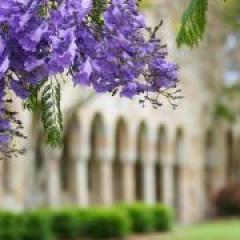Were Human Populations Restricted to Refugia in Africa During the Pleistocene? A test of competing models for population structure in southern Africa
Abstract
Throughout the world, the impact of glacial cycling and climate fluctuation substantially altered the distribution of forests, deserts, and grasslands, and the animal communities that depend on them. Lowered temperatures and reduced precipitation during glacial periods may have reduced the range of some species into isolated pockets of suitable habitats, or refugia. The origins of modern humans has been argued to be the product of a population bottleneck during a long-lasting glacial phase 195-130,000 years ago into a refugium. In this presentation, I will present the results of two modelling projects exploring the relationship between changing habitat suitability and archaeological evidence for human demographic and behavioural changes in Africa. First, to test the human origins refugium hypothesis, I use habitat suitability modelling to examine whether the distribution of suitable habitats for hunter-gatherer populations would be more fragmented during glacial phases than interglacial phases, and where areas of high habitat suitability are located. Second, I examine how the genetic diversity of Chacma baboons is related to changing habitat suitability during glacial phases. Similarities in ecological tolerances between the two genera (Papio and Homo) make baboons an insightful analogue for interpreting patterns in the late Pleistocene archaeological record of human population dynamics that are rooted in ecological relationships. From this perspective, how baboon populations responded to uneven habitat changes through time may provide clues to interpreting the patchy archaeological record of behavioural milestones in southern Africa.
About the Presenter
Dr Benjamin Schoville is a Lecturer in Archaeology in the School of Social Science, The University of Queensland.
About Archaeology Working Papers
The Working Papers in Archaeology seminar series provides a forum for dissemination of archaeological research and ideas amongst UQ archaeology students and staff. All students are invited to attend the series and postgraduate students, from honours upwards, are invited to present their research. The aim is to provide opportunities for students, staff and those from outside UQ, to present and discuss their work in an informal environment. It is hoped that anyone interested in current archaeological directions, both within and outside the School and University, will be able to attend and contribute to the series.
2025 Upcoming Sessions
| Date | Presenter |
|---|---|
| 8th August | Nicholas Hadnutt and Lincoln Morse |
| 15th August | Jane McMahon |
| 22nd August | Martin Gibbs |
| 29th August | Karen Cooke |
| 5th September | Shoshanna Grounds |
| 12th September | Meg Walker |
| 19th September | Marc Cheeseman |
| 26th September | Ladislav Nejman |
Venue
St Lucia Campus,
The University of Queensland



